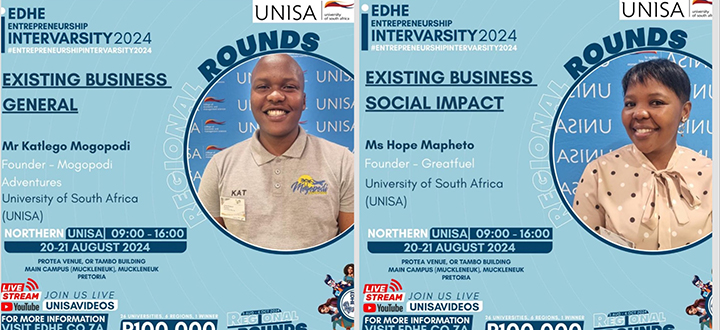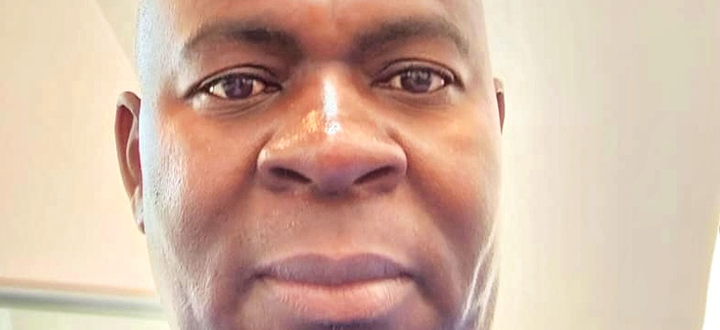News & Media
Ahead of his time in seeing the challenge of coloniality
 Several years before calls for decolonisation erupted into countrywide student protests, Unisa researchers at the Archie Mafeje Research Institute (AMRI) had already identified coloniality as a problem and were actively researching it.
Several years before calls for decolonisation erupted into countrywide student protests, Unisa researchers at the Archie Mafeje Research Institute (AMRI) had already identified coloniality as a problem and were actively researching it.
AMRI’s head, Prof Sabelo J Ndlovu-Gatsheni, was one of the founders of the Africa Decolonial Research Network (ADERN), which has since 2011 made some important contributions to the debate on decolonisation and decoloniality. Most recently, in 2016, Ndlovu-Gatsheni published two books, the first a sole-authored book titled The decolonial Mandela, and subtitled Peace, justice and the politics of life. The second, which he co-edited with Prof Siphamandla Zondi from the University of Pretoria, is titled Decolonising the university, knowledge systems and the disciplines in Africa.
The formation of ADERN predated the #RhodesMustFall and #FeesMustFall movements, showing that this network of academics was correct in identifying coloniality as a challenge. “We were prophetic because when we started, a lot of people did not understand why we were concerned about decolonisation and decoloniality, thinking this was something of the past, questioning why we were bringing it back,” says Ndlovu-Gatsheni.
He points out that being an academic means using knowledge and science to predict the future, and therefore professors need to profess knowledge that can give people guidance in terms of what is going to come.
The roots of coloniality
The issue of colonisation dates back to the 15th century. Understanding coloniality calls for an understanding of the unfolding of Euro-American Modernity, says Ndlovu-Gatsheni. This is a civilisational project that comes from Europe and America, claiming to be the most superior civilisation. Specifically, it claims that it:
- Seeks to liberate humanity from all obstacles
- Uses science to solve all human problems
Instead of Euro-American civilisation solving human problems, Ndlovu-Gatsheni says it created them, particularly for non-Europeans and African people. The problems it created are:
- Decimation of the indigenous people of the Americas.
- Enslavement and dehumanisation of black people of Africa
- Colonialism and apartheid that have constituted crimes against black humanity.
- Racial capitalism founded on the exploitation of black human beings in particular, and workers and peasants in general.
- Cultural imperialism, involving the destruction of other cultures and spreading. European and American culture as the only one worth retaining.
- Epistemicide, which is the killing of other people’s knowledges in order to introduce colonial knowledge as the only one, and classifying African knowledge as wrong and barbaric.
- Linguicides, which is the killing of other people’s languages to replace them with colonial ones.
Students raise questions and win battles
The dominance of Euro-American centricity has prompted students to ask searching questions, such as: Where are the black academics and why are there so few in South Africa as an African country? Why in the curriculum are they taught about Karl Max Weber and not African thinkers? Ndlovu-Gatsheni says students have raised questions relating to ‘cultural imperialism’, pointing out that the institutional cultures of universities are still Eurocentric. “We are happy that the students have joined in this struggle and are putting pressure on the ground, winning some small battles, like the no-fee increment in 2016.”
He has produced a number of other books as part of a contribution to the liberation of black people from coloniality and to reveal the coloniality of knowledge, including how knowledge is colonised by other hegemonies on this continent. These books also directly influence scholarship by informing people that there is another theory of writing about Africa instead of relying on theories from Europe. After reading these books, he says, one is meant to undergo a decolonisation of one’s mentality and world view.
Joining hands to bring about curriculum change
As a professor, Ndlovu-Gatsheni supervises master’s and doctoral students who are using decolonial theory to understand African issues. He has also visited the Public Administration Management department in the College of Economic and Management Sciences (CEMS), as well as the College of Agriculture and Environmental Sciences (CAES), and School of Business Leadership (SBL) with the purpose of trying to assist stakeholders with curriculum amendment.
Working closely with the former Executive Dean of the College of Human Sciences (CHS), Prof Rosemary Moeketsi, in the Decoloniality Project since 2012, Ndlovu-Gatsheni actively played a leading role in bringing the Annual Decoloniality Summer School to Unisa in 2014. The most recent one took place in January, where decolonial thought, knowledge, power, and being were taught during the training programme.
Le Monde, a French newspaper, has listed Ndlovu-Gatsheni as one of 10 African scholars and granted him a restitution award in 2016 for promoting the idea of decolonisation in the emancipation of the continent. As a network of academics, ADERN has always sought a dialogical engagement between European and African thinkers, with the objective of Europeans listening to the concerns of Africans without imposing any ideas.
Looking at the process of remedying past injustices, Ndlovu-Gatsheni says Europe needs to de-imperialise, deracialise, and decolonise in order to create a new humanism where all people are equal and where difference does not result in oppression and exclusion.
*By Mpho Moloele
Publish date: 2017-02-14 00:00:00.0


 Cream of the crop – Unisa scientists ranked among the world's top 2%
Cream of the crop – Unisa scientists ranked among the world's top 2%
 Nonkululeko Malomane flies the Unisa flag at FameLab final
Nonkululeko Malomane flies the Unisa flag at FameLab final
 Unisa students claim victory in EDHE Intervarsity Competition
Unisa students claim victory in EDHE Intervarsity Competition
 Unisa AI innovators lead engaging webinar on AI-infused module design
Unisa AI innovators lead engaging webinar on AI-infused module design
 Recognition for Unisan’s journey of decolonising African epistemology
Recognition for Unisan’s journey of decolonising African epistemology
